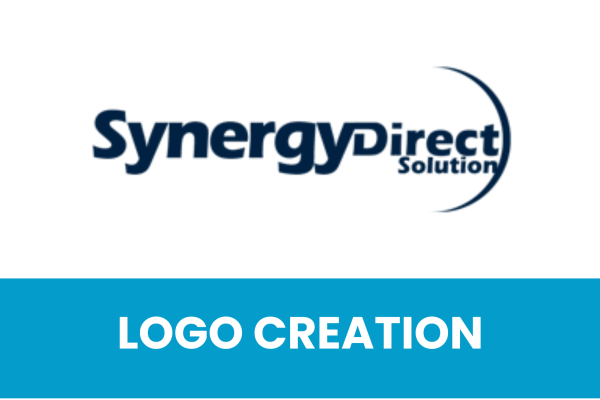Your #1 Solution For Business Loan Leads & MCA Leads!





Internet Marketing Solutions

Logo Design
A logo is a visual representation of your company. It should be consistent with your mission statement and your brand. Synergy Direct Solution creates awesome logo designs!

Website Design
Whether you’re looking for a simple yet professional online presence or an elaborate e-commerce website with a members section Synergy is the only choice to get it done right!

Google Analytics
Google Analytics is the enterprise-class analytics solution for web traffic & marketing. Powerful, flexible and easy-to-use features let you see and analyze your traffic.

SEO
(SEO) is the process of establishing higher rankings in organic search results. Synergy Direct Solution can build you an amazing website with Search Engine Optimization!

Leads
Synergy Direct Solution sells MCA leads, Merchant Cash Advance Appointments, MCA Live Transfers, aged MCA leads, Internet Marketing for lenders, and Virtual Agents!

Search Engine Marketing
Search Engine Marketing is know as SEM or PPC. The most commonly used platform for SEM is Google Adwords. This program allows you to select a budget that is comfortable.
Testimonials
Our company has worked with Synergy Direct Solutions for months. Kyle is quick, transparent and honest. They are a great resource, and we will continue to work with them long into the future.
Client
I almost want to keep this company a secret! But I can't! These leads are TOO good! Kyle is as good as they come for this business and the ROI is definitely there. Live transfers especially .
Client
Synergy Direct Solution's live transfer leads have greatly increased our business loan applications, with a 1 in 3 conversion rate. Their leads are high-quality, and their service is professional and effective. Partnering with them has been a game-changer for our business growth.
Client
Synergy Direct Solutions stands out as the most reliable lead provider, delivering high-quality and relevant leads that drive real business growth. Unlike other services, their leads are always current, saving us time and resources. A special thanks to Kyle for his dedication and exceptional service, making Synergy an invaluable partner in our sales strategy.
Client
I have been in sales for over 25yrs and have done business with multiple lead companies. I have yet to see a company with the quality of leads and the great service that Synergy leads have provided for my company. I would definitely give them 5 stars and would highly recommend them to any company with a sales team.
Client
I started taking live transfer leads from Synergy and they were amazing! They connect me with a live borrower after pre qualifying them for me.
Client
The communication and customer service is second to none. I’ve purchased leads from many companies and Synergy Direct seems to be a better value than the others. I receive a good return on my investment and have ordered many times. Positive Responsiveness, Quality, Professionalism, Value
Client
This company is the best live transfer company I have ever come across and I have tried
many!!
Positive
Responsiveness, Quality,
Professionalism, Value
Client
Working with Synergy Direct Solution is been great for past few years! They have great live transfers along appointment leads. Will continue using their services. Keep up the good work Guys!! Positive Responsiveness, Quality, Professionalism, Value
Client
My experience with Synergy Direct Solutions has been AMAZING! They are always one phone call away and super helpful. Our phones continue to ring daily with new customers that have found us on the internet. Thank You Synergy Team for a job well done!
Client
Excellent service. I highly recommend them
Client
Aged MCA Leads
Are you a lender or loan broker that’s struggling to find great Aged MCA Leads? Have you tried to generate your own Aged Merchant Cash Advance Leads for your sales people with minimal? How many times have you purchased MCA Leads from a vendor that didn’t even care if you got results? Finally, what percentage of these leads actually closed?
Aged MCA Leads are easy to find but which leads will work for you and which leads are a waste of money? There are UCC leads, trigger leads, equipment finance leads, factoring leads, line of credit leads, and that’s just scratching the surface. So how do you find the right Aged MCA Leads and what makes these leads work?
In this article we will discuss the different types of leads that you have available to you. Additionally, we will talk about Synergy leads and why they’re so different compared to other lead companies in this industry. By the end we think you’ll be a client!
MCA Leads
Synergy Direct Solution LLC was established in 2010 as a marketing agency specializing in MCA Leads. Our core products include website design, Search Engine Optimization, search engine marketing, and social media marketing. Additionally, our experience with click funnels, Google Analytics, email marketing, and search engine visibility allows us to be the best MCA lead provider in the industry! Synergy has thousands of clients covering all 50 states. Additionally, we’re partners with Google, Yahoo, and Godaddy and Synergy has an A+ rating with the BBB. Consequently, we are a company that you can trust to put your success first!
In summary, we know marketing inside and out. We’ve been doing it for a very long time and we use a combination of products that work together to produce amazing MCA leads. Although we had great success servicing our internet marketing clients, we’d heard about how hot the Merchant Cash Advance profession was getting and we wanted to get involved.
MCA Live Transfer Leads
There are several things to consider when buying MCA Live Transfers. Firstly, which MCA Live Transfer companies should you consider using? You can find many websites where you can buy MCA Live Transfers. What makes a live transfer company a good one? Similarly, what makes a bad MCA Live Transfer company? We will investigate what a live transfer is and what to look for in a good MCA live transfer company.
MCA Live Transfers are leads that you can buy for the MCA industry. These leads are not aged leads and they do not come in a spreadsheet. For example, aged MCA leads typically come in a CSV file that you can upload into a dialer or marketing campaign. Conversely, MCA Live Transfers are typically sent one at a time. In this article we will look at MCA Live Transfers and the companies that offer them. Furthermore, our objective here will be to make it easier for you to identify the bad lead vendors and avoid losing money on terrible leads.
The process of a live transfer really comes down to three steps.
